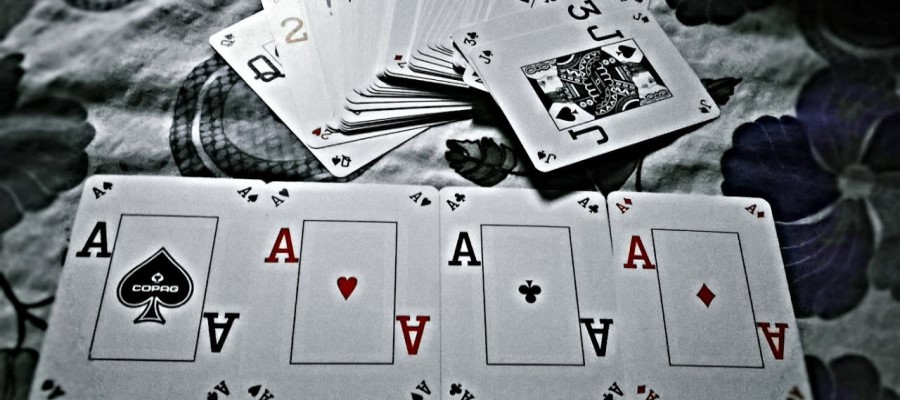Bouncing Back After A Tough Casino Session

Tough sessions happen to every casino player who plays long enough. But what matters is what comes next, when the chips are gone and the lights no longer feel so inviting. Just like there is preparation before the game, so too is there after-game cleanup.
Explore Your Options
Ask yourself: was this loss part of an acceptable risk window? Or did you go beyond what you’d normally allow? And if so, why? The healthiest way to bounce back is to rebuild with clear rules and try new places. Define your loss limits. Set win targets, too, if that helps structure your play. Start fresh. Pick a new place to play, and it can be somewhere where you have secure payouts, great bonuses, and plenty of variety. The world is wide and full of options.
Asian casinos can lack something EU casinos can offer, and US casinos can have a bit of both. The most important thing is to explore your options, and that trip can be the change you need. There are plenty of California’s casinos to explore online, so you should always be thinking in terms of sessions. It’s a journey and not one big sprint chase for redemption. Systems don’t guarantee wins, but they prevent disasters.
Let The Dust Settle Before Making A New Move
What’s done is done, and when anyone is walking out or closing their laptop after a rather rough session, it can fog up their mind. The easiest thing and almost a pattern is the thinking along the lines of “Should I go back tomorrow? Maybe I just need one good run.” Nah, because this is precisely the moment when to *not* make such a move. When emotions are raw, thinking goes narrow.
Whatever the loss was, you need a cooldown period. That cooling-off window will help you recalibrate and assess the situation. All of this is happening as that urge that’s boiling inside you isn’t about the money anymore.

Talk To Someone Outside The Game
One underrated way to reset is to talk to someone who wasn’t there. Not necessarily a therapist—although that helps some people—but even a friend who isn’t caught up in the gambling mindset. Say it out loud: “I lost more than I planned to.” You’ll know right away, from your own tone, whether that sits right or not. It’s not about guilt. It’s about pulling the experience back into the real world. Losses feel smaller when you hear your own words, grounded in reality.
Reconnect With Non-Gambling Activities
This isn’t about quitting. It’s about balance and clearing the mental chaos. After a string of tough sessions, or even one particularly draining night, re-centering yourself away from the tables is essential. Go hiking. Take in a game. Cook. Read. There’s something about putting your attention elsewhere that helps with recalibration. The brain’s reward systems can get tangled after a long night of risk-reward loops.
Doing something quiet, something tactile, helps untangle the tension. Gamblers who stay grounded outside the casino tend to last longer. They don’t spiral. They don’t get swallowed up by the noise. Because they remember what quiet feels like.
Reset Expectations, Not Just Goals
The next time you step back into the casino, it should feel different. Not colder, necessarily, but more deliberate. Don’t go in with a “make it all back” mindset. That’s fantasy thinking. Skilled gamblers play the long game. They focus on making the best decision in the moment, not recouping past losses. Whether it’s roulette, baccarat, sports betting, or poker, your edge—if there is one—exists in clarity. Emotional carryover muddies the math.
So don’t just reset the bankroll or adjust session length. Reset how you frame success. A controlled session, win or lose, is a win for your discipline. And long term, that’s where profit comes from. Not short-term revenge spins.
Be Wary of Making Drastic Changes Right After
A bad session can trick players into thinking they need to throw out their system and start over. That instinct can be dangerous. Losses create discomfort which leads to uncertainty. And you should never let uncertainty drive your impulsive decisions, as letting time do its work can be healing. Not all discomfort needs fixing. Sometimes it just needs space.
Track Sessions More Rigorously Going Forward
Lots of players keep vague mental tallies of wins and losses. That’s not enough. After a tough night, tighten the tracking. A wise man writes while a foolish one tries to remember, so keep a trusty pen and paper around. And write down everything. The date when it happened, at what time, how long the session lasted, where you played, the amount (of course) lost and won as both are important, your mood, what you ate, etc.
And who knows what you might learn. Maybe you tilt more easily on weekdays. Or lose discipline when tired. Or always increase bets late in a session. The goal isn’t to obsess, just to observe. Tracking turns vague regret into useful data. And that data helps inform smarter choices next time.
Final Thoughts
Everyone takes hits at the tables. The key is how you react. And for your gambling discipline to train, you need time, space, and being honest in self-assessing yourself. The most important thing to remember is that it was only one session and not a general rule.